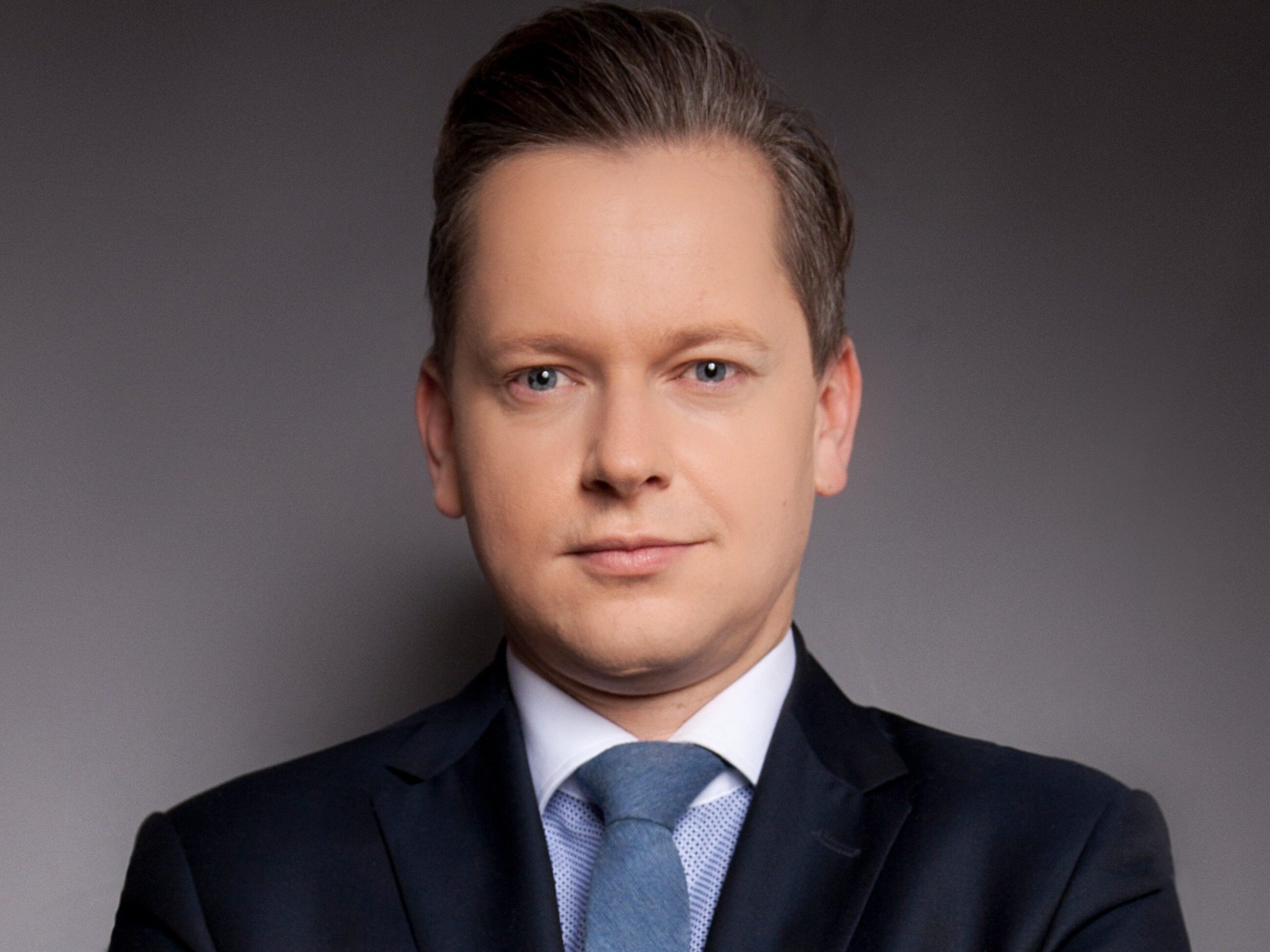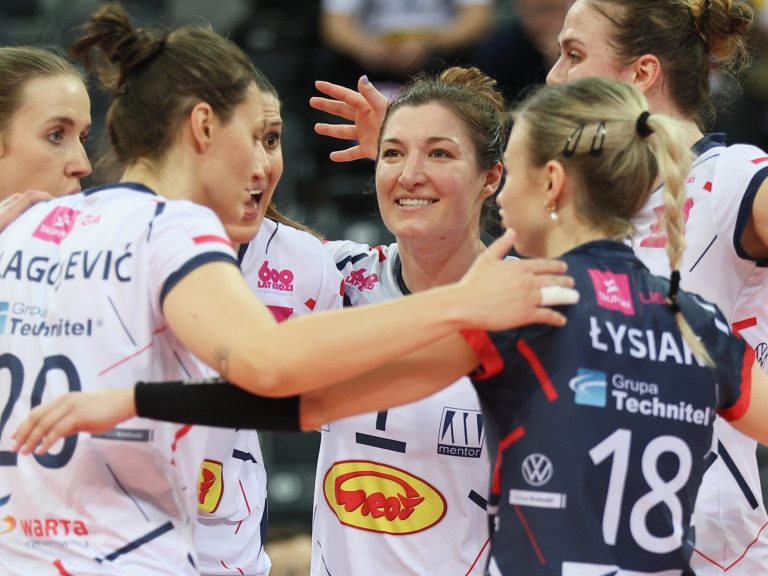Dr. Staszewski: The Medical Research Agency motivates the community of Polish researchers to act

– We have more and more interesting scientific publications that really show that Polish science is reaching a higher level. We are very happy about this, said Dr. Rafał Staszewski, deputy president of the Medical Research Agency for research financing, in the “People of Science” podcast.
How Polish doctors of the 21st century change reality – this is the question we ask in October as part of the series “Science is a Polish specialty”. One of the institutions that allows the development of Polish medicine is the Medical Research Agency. That’s why in the “People of Science” podcast this month we talk to Dr. n. med. Rafał Staszewski, deputy president of the Medical Research Agency for research financing.
We invite you to listen to the entire episode of the Wprost podcast “People of Science”:
“Polish medicine is certainly innovative”
Dr. Staszewski assures in the interview that Polish medicine is innovative. – First of all, Polish medicine responds to global trends. In many areas, Polish patients have practically identical medical procedures that are performed either in Europe or around the world, emphasized Dr. Staszewski in the interview. – The Medical Research Agency motivates the community of Polish researchers to take action and discover new things, both large and small. We also try to stimulate entrepreneurs. And this is the second scope of activity that guides us – the development of Polish innovative thought – he added.
So what does the Medical Research Agency do? – The Medical Research Agency is a very young institution. We have been operating for 5 years and our core activity is the development of non-commercial clinical trials. Non-commercial clinical trials do not serve the purpose of registering a new medicinal product or medical device, but they serve to increase medical knowledge. We want this knowledge to be as objective as possible and to serve future patients, says Dr. Staszewski. – Our activities are also related to the implementation of medical experiments, e.g. comparison of two methods of treating patients. Sometimes we have different methods that we use to reach a specific goal and we try to assess which of them is not only more effective and efficient, but which is also cheaper for the health care system – he points out.
Polish universities and Polish scientists benefit from the Agency’s financing of non-commercial clinical trials and medical experiments. – It is not only about thinking about the very distant future, although of course you have to know that the effects in clinical trials come late, but it is also about inspiring Polish scientists at medical universities who have so far had limited opportunities to obtain grants for the development of science and establishing international cooperation, which is necessary today, says the deputy president of the Agency.
As Dr. Staszewski explains, grants from medical research agencies in the field of non-commercial clinical trials are received primarily by medical universities, but also by other universities that carry out research and development activities in the field of medical and health sciences, state research institutes, and hospitals that conduct research and development activities.
– The Medical Research Agency also implements commercial development projects related to drugs and medical devices. We subsidize companies carrying out a specific part, either research or production, in our country, says Dr. Staszewski. – It is not only important from a medical perspective that we secure key and important pharmaceutical production in our country, but it is also important from an economic perspective. If we develop science in Poland, it is also based on cooperation with Polish universities. We thereby increase the value of enterprises operating in Poland, he adds.
The latest trends in medical research
We asked Dr. Staszewski about trends occurring in Polish medical research. One of them is the use of artificial intelligence. – This is the last competition decided by the Medical Research Agency, worth nearly half a billion zlotys. These are the so-called Digital Medicine Centers. Several Digital Medicine Centers will be established at our Clinical Research Support Centers, i.e. centers conducting clinical trials in Poland, whose task will be not only to collect medical data, but also to automate the data analysis process to a certain extent. And this is to happen, among others: through artificial intelligence – explains Dr. Staszewski.
Another trend that can also be noticed in grants from the Medical Research Agency is research using advanced mRNA technologies. Yet another important area of research is pharmacogenomics, used especially in oncology drugs.
– Specific genetic conditions of the patient are checked, e.g. specific mutations, and it is known that in this population of sick people only some people should receive a specific drug. This means that we adapt the drug to the specific situation of the patient and the specific genetic conditions that the patient has. This is the future, certainly in oncology. Not common medicines, but the so-called targeted drugs, i.e. drugs that are specific to the patient’s health condition. This is a very big trend that is currently happening in the world and which we also want to follow, said Dr. Staszewski.
The deputy president of the Medical Research Agency points out another trend that can be observed in research. – These are biological drugs. A very complex group of drugs, many of them functioning, at least in the same scope as rheumatology. And here we would also like to develop this area, moving towards so-called biosimilar drugs – says Dr. Staszewski.
How does the guest of the “People of Science” podcast assess Poland’s chances of receiving the Nobel Prize in medicine? – Let us remember that our research has only just begun to enter the mature phase, and we are just beginning to develop this area of clinical trials involving humans. But there are several such studies that will probably produce very interesting publications, especially in the area of hematology, rare diseases, but also some rare cancers in children. These are studies that not only have a scientific dimension, but have already resulted in Polish patients who previously had no option of treatment obtaining it. We keep our fingers crossed that they will also end with serious prizes, said Dr. Staszewski. – When it comes to the Nobel Prize, it is difficult to predict, because remember that it is appreciated by people after 15, 20, 25 years, so this time must absolutely pass. However, we already see that we have, for example, more and more interesting scientific publications in the world, which actually show that Polish science is reaching a higher level and we are very happy about it – he added.
The deputy president of the Medical Research Agency also pointed to the successes of Polish medical research over the last few or a dozen years. – I think there are actually several successes. If we look at therapeutic areas, Polish cardiology is a world leader in terms of not only the development of hemodynamic laboratories and cardiac electrotherapy. We have some of the best indicators when it comes to the effectiveness of treatment of acute myocardial infarction – emphasizes Dr. Staszewski. – It is also worth talking about hematology, which has completely changed its face from a therapeutically difficult discipline that very often resulted in treatment failure. The change occurred due to the development of very innovative, e.g. CAR-T therapies, which changed the fate of patients. Of course, we are at the beginning, but we are also among the world leaders when it comes to modern therapies for this group of people – he adds.






